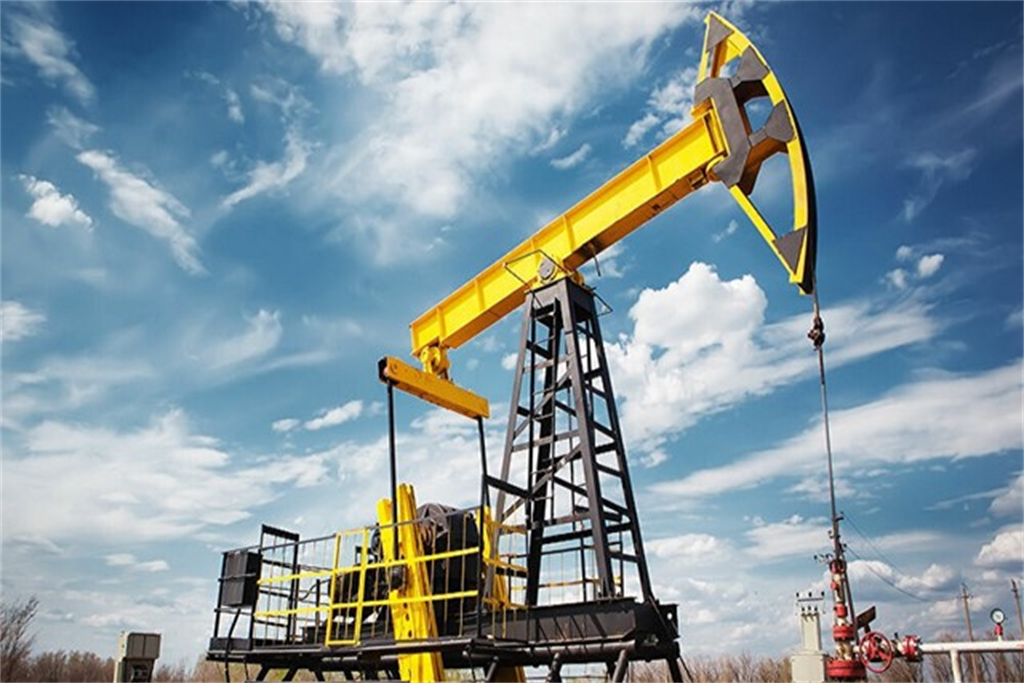 In addition, many refineries around the world are leveraging technologies such as artificial intelligence (AI) and big data analytics to optimize operations. Smart management systems help detect equipment failures in a timely manner, reduce downtime, and save on maintenance and repair costs. 2. Organize small but effective teams Lean teams are becoming a trend in the refining industry. These teams not only reduce operating costs but also increase the ability to respond flexibly to market changes. At many large oil and gas corporations such as ExxonMobil, small specialized teams are assigned to handle innovation projects or optimize production, bringing outstanding efficiency. Building a team with highly competent employees not only helps optimize operations but also creates a solid foundation to meet long-term goals. In particular, regular performance evaluations and replacement of individuals who do not meet requirements are important factors in maintaining efficiency in production and business operations. 3. Pursuing speed to create an advantage In a fiercely competitive environment, the speed of decision-making and work implementation is not only an advantage but also a vital factor. In 2023, Elon Musk surprised the world when he acquired Twitter for $ 44 billion and immediately made a bold move, laying off nearly 80% of his staff, from 7,500 to about 1,500 people. Many people predicted that this would destroy this social networking platform, but in fact, operational efficiency has increased significantly. Why is this effective? The answer lies in Parkinson's Law. Parkinson's Law states that: "The work will last exactly as long as the assigned time". By drastically reducing the number of employees, Musk restructured the organization, eliminated unnecessary administrative procedures and forced all operations to become more efficient. Thus, setting strict but reasonable timelines not only speeds up work processing but also stimulates creativity and innovation within the team. Currently, refineries are also gradually applying the "project acceleration" model to meet the increasingly complex and diverse market needs. 4. Building a high-responsibility culture An efficient factory is a place where each employee has a deep sense of personal responsibility. Responsibility does not stop at completing tasks but also includes pride in their contributions to the overall success. In modern refineries, setting clear standards and requiring personal responsibility has promoted team cohesion. In particular, ESG (Environmental, Social, Governance) standards are becoming the foundation for factories to build reputation and attract partners. 5. The art of delegation: Effective management leverage Effective management does not mean managing everything but knowing how to delegate authority to the right person, the right job. Delegation not only helps reduce pressure on management but also encourages employees to maximize their capacity. An effective delegation system needs to ensure transparency and empower employees. In modern factories, employees are not only assigned specific responsibilities but also have the right to make decisions within their scope of work. This not only optimizes resources but also improves operational efficiency, motivating the team to contribute better. 6. Innovate to adapt to the energy transition trend The global oil refining industry is facing a wave of strong transition to renewable energy. Sustainable aviation fuel (SAF), renewable diesel and carbon capture and storage (CCS) are emerging trends. Refineries cannot stay out of the game if they want to maintain their position in the long term. In Vietnam, although there are no clear regulations on SAF, this is an opportunity for pioneering factories to pave the way for new markets. In addition, applying IoT for flexible monitoring and control combined with Big Data for analysis and production optimization will help improve operational efficiency, reduce costs and minimize environmental impact. Refineries in Vietnam are facing great competitive pressure from factories in China, Singapore, South Korea and the Middle East. Meanwhile, domestic demand for gasoline continues to grow steadily at 3-5%/year. This is both a challenge and an opportunity for domestic factories to upgrade technology, improve operational efficiency and capture the clean fuel trend. In the new era of development, the oil refining industry needs a modern management mindset to overcome challenges and exploit opportunities. By focusing on improving efficiency, promoting responsibility, innovating technology and building a sustainable culture, oil refineries can not only maintain competitiveness but also make positive contributions to the economic and energy development of the country. Change is inevitable, and only businesses that know how to adapt can go far in the future./. Source: https://bsr.com.vn/?lang=vi#/bai-viet/tu-duy-quan-tri-trong-ky-nguyen-phat-trien-moi
In addition, many refineries around the world are leveraging technologies such as artificial intelligence (AI) and big data analytics to optimize operations. Smart management systems help detect equipment failures in a timely manner, reduce downtime, and save on maintenance and repair costs. 2. Organize small but effective teams Lean teams are becoming a trend in the refining industry. These teams not only reduce operating costs but also increase the ability to respond flexibly to market changes. At many large oil and gas corporations such as ExxonMobil, small specialized teams are assigned to handle innovation projects or optimize production, bringing outstanding efficiency. Building a team with highly competent employees not only helps optimize operations but also creates a solid foundation to meet long-term goals. In particular, regular performance evaluations and replacement of individuals who do not meet requirements are important factors in maintaining efficiency in production and business operations. 3. Pursuing speed to create an advantage In a fiercely competitive environment, the speed of decision-making and work implementation is not only an advantage but also a vital factor. In 2023, Elon Musk surprised the world when he acquired Twitter for $ 44 billion and immediately made a bold move, laying off nearly 80% of his staff, from 7,500 to about 1,500 people. Many people predicted that this would destroy this social networking platform, but in fact, operational efficiency has increased significantly. Why is this effective? The answer lies in Parkinson's Law. Parkinson's Law states that: "The work will last exactly as long as the assigned time". By drastically reducing the number of employees, Musk restructured the organization, eliminated unnecessary administrative procedures and forced all operations to become more efficient. Thus, setting strict but reasonable timelines not only speeds up work processing but also stimulates creativity and innovation within the team. Currently, refineries are also gradually applying the "project acceleration" model to meet the increasingly complex and diverse market needs. 4. Building a high-responsibility culture An efficient factory is a place where each employee has a deep sense of personal responsibility. Responsibility does not stop at completing tasks but also includes pride in their contributions to the overall success. In modern refineries, setting clear standards and requiring personal responsibility has promoted team cohesion. In particular, ESG (Environmental, Social, Governance) standards are becoming the foundation for factories to build reputation and attract partners. 5. The art of delegation: Effective management leverage Effective management does not mean managing everything but knowing how to delegate authority to the right person, the right job. Delegation not only helps reduce pressure on management but also encourages employees to maximize their capacity. An effective delegation system needs to ensure transparency and empower employees. In modern factories, employees are not only assigned specific responsibilities but also have the right to make decisions within their scope of work. This not only optimizes resources but also improves operational efficiency, motivating the team to contribute better. 6. Innovate to adapt to the energy transition trend The global oil refining industry is facing a wave of strong transition to renewable energy. Sustainable aviation fuel (SAF), renewable diesel and carbon capture and storage (CCS) are emerging trends. Refineries cannot stay out of the game if they want to maintain their position in the long term. In Vietnam, although there are no clear regulations on SAF, this is an opportunity for pioneering factories to pave the way for new markets. In addition, applying IoT for flexible monitoring and control combined with Big Data for analysis and production optimization will help improve operational efficiency, reduce costs and minimize environmental impact. Refineries in Vietnam are facing great competitive pressure from factories in China, Singapore, South Korea and the Middle East. Meanwhile, domestic demand for gasoline continues to grow steadily at 3-5%/year. This is both a challenge and an opportunity for domestic factories to upgrade technology, improve operational efficiency and capture the clean fuel trend. In the new era of development, the oil refining industry needs a modern management mindset to overcome challenges and exploit opportunities. By focusing on improving efficiency, promoting responsibility, innovating technology and building a sustainable culture, oil refineries can not only maintain competitiveness but also make positive contributions to the economic and energy development of the country. Change is inevitable, and only businesses that know how to adapt can go far in the future./. Source: https://bsr.com.vn/?lang=vi#/bai-viet/tu-duy-quan-tri-trong-ky-nguyen-phat-trien-moi
Management thinking in the new development era
 Việt Nam•15/01/2025
Việt Nam•15/01/2025In the context of the accelerating global energy transition, along with major fluctuations in the world economy, the oil refining industry is facing historic challenges and opportunities. The rise of alternative fuels, the need to reduce carbon emissions and competitive pressure from international markets have created an urgent need for innovation in management. Plant management efficiency is not only a vital factor but also determines competitiveness, the ability to optimize production and contribute to the sustainable development of the national energy industry. In the new era of development, oil refineries need to focus on modern management thinking, promoting efficiency, responsibility and innovation. 1. Focus on efficiency and eliminate waste In the oil refining industry, waste reduction is not only an internal requirement but also comes from external pressure, especially in the context of volatile oil prices and increasingly narrowing refining profit margins. Factors like complex processes, long meetings, and ineffective management are “invisible barriers” that reduce productivity. A good example of optimization is cutting down on unnecessary meetings. As Elon Musk once emphasized, “Excess meetings are the bane of large companies.” Holding meetings only when absolutely necessary and focusing on key issues allows teams to focus resources on important goals, such as maintaining stable operations and increasing economic efficiency.  In addition, many refineries around the world are leveraging technologies such as artificial intelligence (AI) and big data analytics to optimize operations. Smart management systems help detect equipment failures in a timely manner, reduce downtime, and save on maintenance and repair costs. 2. Organize small but effective teams Lean teams are becoming a trend in the refining industry. These teams not only reduce operating costs but also increase the ability to respond flexibly to market changes. At many large oil and gas corporations such as ExxonMobil, small specialized teams are assigned to handle innovation projects or optimize production, bringing outstanding efficiency. Building a team with highly competent employees not only helps optimize operations but also creates a solid foundation to meet long-term goals. In particular, regular performance evaluations and replacement of individuals who do not meet requirements are important factors in maintaining efficiency in production and business operations. 3. Pursuing speed to create an advantage In a fiercely competitive environment, the speed of decision-making and work implementation is not only an advantage but also a vital factor. In 2023, Elon Musk surprised the world when he acquired Twitter for $ 44 billion and immediately made a bold move, laying off nearly 80% of his staff, from 7,500 to about 1,500 people. Many people predicted that this would destroy this social networking platform, but in fact, operational efficiency has increased significantly. Why is this effective? The answer lies in Parkinson's Law. Parkinson's Law states that: "The work will last exactly as long as the assigned time". By drastically reducing the number of employees, Musk restructured the organization, eliminated unnecessary administrative procedures and forced all operations to become more efficient. Thus, setting strict but reasonable timelines not only speeds up work processing but also stimulates creativity and innovation within the team. Currently, refineries are also gradually applying the "project acceleration" model to meet the increasingly complex and diverse market needs. 4. Building a high-responsibility culture An efficient factory is a place where each employee has a deep sense of personal responsibility. Responsibility does not stop at completing tasks but also includes pride in their contributions to the overall success. In modern refineries, setting clear standards and requiring personal responsibility has promoted team cohesion. In particular, ESG (Environmental, Social, Governance) standards are becoming the foundation for factories to build reputation and attract partners. 5. The art of delegation: Effective management leverage Effective management does not mean managing everything but knowing how to delegate authority to the right person, the right job. Delegation not only helps reduce pressure on management but also encourages employees to maximize their capacity. An effective delegation system needs to ensure transparency and empower employees. In modern factories, employees are not only assigned specific responsibilities but also have the right to make decisions within their scope of work. This not only optimizes resources but also improves operational efficiency, motivating the team to contribute better. 6. Innovate to adapt to the energy transition trend The global oil refining industry is facing a wave of strong transition to renewable energy. Sustainable aviation fuel (SAF), renewable diesel and carbon capture and storage (CCS) are emerging trends. Refineries cannot stay out of the game if they want to maintain their position in the long term. In Vietnam, although there are no clear regulations on SAF, this is an opportunity for pioneering factories to pave the way for new markets. In addition, applying IoT for flexible monitoring and control combined with Big Data for analysis and production optimization will help improve operational efficiency, reduce costs and minimize environmental impact. Refineries in Vietnam are facing great competitive pressure from factories in China, Singapore, South Korea and the Middle East. Meanwhile, domestic demand for gasoline continues to grow steadily at 3-5%/year. This is both a challenge and an opportunity for domestic factories to upgrade technology, improve operational efficiency and capture the clean fuel trend. In the new era of development, the oil refining industry needs a modern management mindset to overcome challenges and exploit opportunities. By focusing on improving efficiency, promoting responsibility, innovating technology and building a sustainable culture, oil refineries can not only maintain competitiveness but also make positive contributions to the economic and energy development of the country. Change is inevitable, and only businesses that know how to adapt can go far in the future./. Source: https://bsr.com.vn/?lang=vi#/bai-viet/tu-duy-quan-tri-trong-ky-nguyen-phat-trien-moi
In addition, many refineries around the world are leveraging technologies such as artificial intelligence (AI) and big data analytics to optimize operations. Smart management systems help detect equipment failures in a timely manner, reduce downtime, and save on maintenance and repair costs. 2. Organize small but effective teams Lean teams are becoming a trend in the refining industry. These teams not only reduce operating costs but also increase the ability to respond flexibly to market changes. At many large oil and gas corporations such as ExxonMobil, small specialized teams are assigned to handle innovation projects or optimize production, bringing outstanding efficiency. Building a team with highly competent employees not only helps optimize operations but also creates a solid foundation to meet long-term goals. In particular, regular performance evaluations and replacement of individuals who do not meet requirements are important factors in maintaining efficiency in production and business operations. 3. Pursuing speed to create an advantage In a fiercely competitive environment, the speed of decision-making and work implementation is not only an advantage but also a vital factor. In 2023, Elon Musk surprised the world when he acquired Twitter for $ 44 billion and immediately made a bold move, laying off nearly 80% of his staff, from 7,500 to about 1,500 people. Many people predicted that this would destroy this social networking platform, but in fact, operational efficiency has increased significantly. Why is this effective? The answer lies in Parkinson's Law. Parkinson's Law states that: "The work will last exactly as long as the assigned time". By drastically reducing the number of employees, Musk restructured the organization, eliminated unnecessary administrative procedures and forced all operations to become more efficient. Thus, setting strict but reasonable timelines not only speeds up work processing but also stimulates creativity and innovation within the team. Currently, refineries are also gradually applying the "project acceleration" model to meet the increasingly complex and diverse market needs. 4. Building a high-responsibility culture An efficient factory is a place where each employee has a deep sense of personal responsibility. Responsibility does not stop at completing tasks but also includes pride in their contributions to the overall success. In modern refineries, setting clear standards and requiring personal responsibility has promoted team cohesion. In particular, ESG (Environmental, Social, Governance) standards are becoming the foundation for factories to build reputation and attract partners. 5. The art of delegation: Effective management leverage Effective management does not mean managing everything but knowing how to delegate authority to the right person, the right job. Delegation not only helps reduce pressure on management but also encourages employees to maximize their capacity. An effective delegation system needs to ensure transparency and empower employees. In modern factories, employees are not only assigned specific responsibilities but also have the right to make decisions within their scope of work. This not only optimizes resources but also improves operational efficiency, motivating the team to contribute better. 6. Innovate to adapt to the energy transition trend The global oil refining industry is facing a wave of strong transition to renewable energy. Sustainable aviation fuel (SAF), renewable diesel and carbon capture and storage (CCS) are emerging trends. Refineries cannot stay out of the game if they want to maintain their position in the long term. In Vietnam, although there are no clear regulations on SAF, this is an opportunity for pioneering factories to pave the way for new markets. In addition, applying IoT for flexible monitoring and control combined with Big Data for analysis and production optimization will help improve operational efficiency, reduce costs and minimize environmental impact. Refineries in Vietnam are facing great competitive pressure from factories in China, Singapore, South Korea and the Middle East. Meanwhile, domestic demand for gasoline continues to grow steadily at 3-5%/year. This is both a challenge and an opportunity for domestic factories to upgrade technology, improve operational efficiency and capture the clean fuel trend. In the new era of development, the oil refining industry needs a modern management mindset to overcome challenges and exploit opportunities. By focusing on improving efficiency, promoting responsibility, innovating technology and building a sustainable culture, oil refineries can not only maintain competitiveness but also make positive contributions to the economic and energy development of the country. Change is inevitable, and only businesses that know how to adapt can go far in the future./. Source: https://bsr.com.vn/?lang=vi#/bai-viet/tu-duy-quan-tri-trong-ky-nguyen-phat-trien-moi
 In addition, many refineries around the world are leveraging technologies such as artificial intelligence (AI) and big data analytics to optimize operations. Smart management systems help detect equipment failures in a timely manner, reduce downtime, and save on maintenance and repair costs. 2. Organize small but effective teams Lean teams are becoming a trend in the refining industry. These teams not only reduce operating costs but also increase the ability to respond flexibly to market changes. At many large oil and gas corporations such as ExxonMobil, small specialized teams are assigned to handle innovation projects or optimize production, bringing outstanding efficiency. Building a team with highly competent employees not only helps optimize operations but also creates a solid foundation to meet long-term goals. In particular, regular performance evaluations and replacement of individuals who do not meet requirements are important factors in maintaining efficiency in production and business operations. 3. Pursuing speed to create an advantage In a fiercely competitive environment, the speed of decision-making and work implementation is not only an advantage but also a vital factor. In 2023, Elon Musk surprised the world when he acquired Twitter for $ 44 billion and immediately made a bold move, laying off nearly 80% of his staff, from 7,500 to about 1,500 people. Many people predicted that this would destroy this social networking platform, but in fact, operational efficiency has increased significantly. Why is this effective? The answer lies in Parkinson's Law. Parkinson's Law states that: "The work will last exactly as long as the assigned time". By drastically reducing the number of employees, Musk restructured the organization, eliminated unnecessary administrative procedures and forced all operations to become more efficient. Thus, setting strict but reasonable timelines not only speeds up work processing but also stimulates creativity and innovation within the team. Currently, refineries are also gradually applying the "project acceleration" model to meet the increasingly complex and diverse market needs. 4. Building a high-responsibility culture An efficient factory is a place where each employee has a deep sense of personal responsibility. Responsibility does not stop at completing tasks but also includes pride in their contributions to the overall success. In modern refineries, setting clear standards and requiring personal responsibility has promoted team cohesion. In particular, ESG (Environmental, Social, Governance) standards are becoming the foundation for factories to build reputation and attract partners. 5. The art of delegation: Effective management leverage Effective management does not mean managing everything but knowing how to delegate authority to the right person, the right job. Delegation not only helps reduce pressure on management but also encourages employees to maximize their capacity. An effective delegation system needs to ensure transparency and empower employees. In modern factories, employees are not only assigned specific responsibilities but also have the right to make decisions within their scope of work. This not only optimizes resources but also improves operational efficiency, motivating the team to contribute better. 6. Innovate to adapt to the energy transition trend The global oil refining industry is facing a wave of strong transition to renewable energy. Sustainable aviation fuel (SAF), renewable diesel and carbon capture and storage (CCS) are emerging trends. Refineries cannot stay out of the game if they want to maintain their position in the long term. In Vietnam, although there are no clear regulations on SAF, this is an opportunity for pioneering factories to pave the way for new markets. In addition, applying IoT for flexible monitoring and control combined with Big Data for analysis and production optimization will help improve operational efficiency, reduce costs and minimize environmental impact. Refineries in Vietnam are facing great competitive pressure from factories in China, Singapore, South Korea and the Middle East. Meanwhile, domestic demand for gasoline continues to grow steadily at 3-5%/year. This is both a challenge and an opportunity for domestic factories to upgrade technology, improve operational efficiency and capture the clean fuel trend. In the new era of development, the oil refining industry needs a modern management mindset to overcome challenges and exploit opportunities. By focusing on improving efficiency, promoting responsibility, innovating technology and building a sustainable culture, oil refineries can not only maintain competitiveness but also make positive contributions to the economic and energy development of the country. Change is inevitable, and only businesses that know how to adapt can go far in the future./. Source: https://bsr.com.vn/?lang=vi#/bai-viet/tu-duy-quan-tri-trong-ky-nguyen-phat-trien-moi
In addition, many refineries around the world are leveraging technologies such as artificial intelligence (AI) and big data analytics to optimize operations. Smart management systems help detect equipment failures in a timely manner, reduce downtime, and save on maintenance and repair costs. 2. Organize small but effective teams Lean teams are becoming a trend in the refining industry. These teams not only reduce operating costs but also increase the ability to respond flexibly to market changes. At many large oil and gas corporations such as ExxonMobil, small specialized teams are assigned to handle innovation projects or optimize production, bringing outstanding efficiency. Building a team with highly competent employees not only helps optimize operations but also creates a solid foundation to meet long-term goals. In particular, regular performance evaluations and replacement of individuals who do not meet requirements are important factors in maintaining efficiency in production and business operations. 3. Pursuing speed to create an advantage In a fiercely competitive environment, the speed of decision-making and work implementation is not only an advantage but also a vital factor. In 2023, Elon Musk surprised the world when he acquired Twitter for $ 44 billion and immediately made a bold move, laying off nearly 80% of his staff, from 7,500 to about 1,500 people. Many people predicted that this would destroy this social networking platform, but in fact, operational efficiency has increased significantly. Why is this effective? The answer lies in Parkinson's Law. Parkinson's Law states that: "The work will last exactly as long as the assigned time". By drastically reducing the number of employees, Musk restructured the organization, eliminated unnecessary administrative procedures and forced all operations to become more efficient. Thus, setting strict but reasonable timelines not only speeds up work processing but also stimulates creativity and innovation within the team. Currently, refineries are also gradually applying the "project acceleration" model to meet the increasingly complex and diverse market needs. 4. Building a high-responsibility culture An efficient factory is a place where each employee has a deep sense of personal responsibility. Responsibility does not stop at completing tasks but also includes pride in their contributions to the overall success. In modern refineries, setting clear standards and requiring personal responsibility has promoted team cohesion. In particular, ESG (Environmental, Social, Governance) standards are becoming the foundation for factories to build reputation and attract partners. 5. The art of delegation: Effective management leverage Effective management does not mean managing everything but knowing how to delegate authority to the right person, the right job. Delegation not only helps reduce pressure on management but also encourages employees to maximize their capacity. An effective delegation system needs to ensure transparency and empower employees. In modern factories, employees are not only assigned specific responsibilities but also have the right to make decisions within their scope of work. This not only optimizes resources but also improves operational efficiency, motivating the team to contribute better. 6. Innovate to adapt to the energy transition trend The global oil refining industry is facing a wave of strong transition to renewable energy. Sustainable aviation fuel (SAF), renewable diesel and carbon capture and storage (CCS) are emerging trends. Refineries cannot stay out of the game if they want to maintain their position in the long term. In Vietnam, although there are no clear regulations on SAF, this is an opportunity for pioneering factories to pave the way for new markets. In addition, applying IoT for flexible monitoring and control combined with Big Data for analysis and production optimization will help improve operational efficiency, reduce costs and minimize environmental impact. Refineries in Vietnam are facing great competitive pressure from factories in China, Singapore, South Korea and the Middle East. Meanwhile, domestic demand for gasoline continues to grow steadily at 3-5%/year. This is both a challenge and an opportunity for domestic factories to upgrade technology, improve operational efficiency and capture the clean fuel trend. In the new era of development, the oil refining industry needs a modern management mindset to overcome challenges and exploit opportunities. By focusing on improving efficiency, promoting responsibility, innovating technology and building a sustainable culture, oil refineries can not only maintain competitiveness but also make positive contributions to the economic and energy development of the country. Change is inevitable, and only businesses that know how to adapt can go far in the future./. Source: https://bsr.com.vn/?lang=vi#/bai-viet/tu-duy-quan-tri-trong-ky-nguyen-phat-trien-moiTag: BSR
Figure



Charming Vietnam

Tet In Dreams: Smiles in the 'scrap village'

Ho Chi Minh City from above

Beautiful image of chrysanthemum field in harvest season





























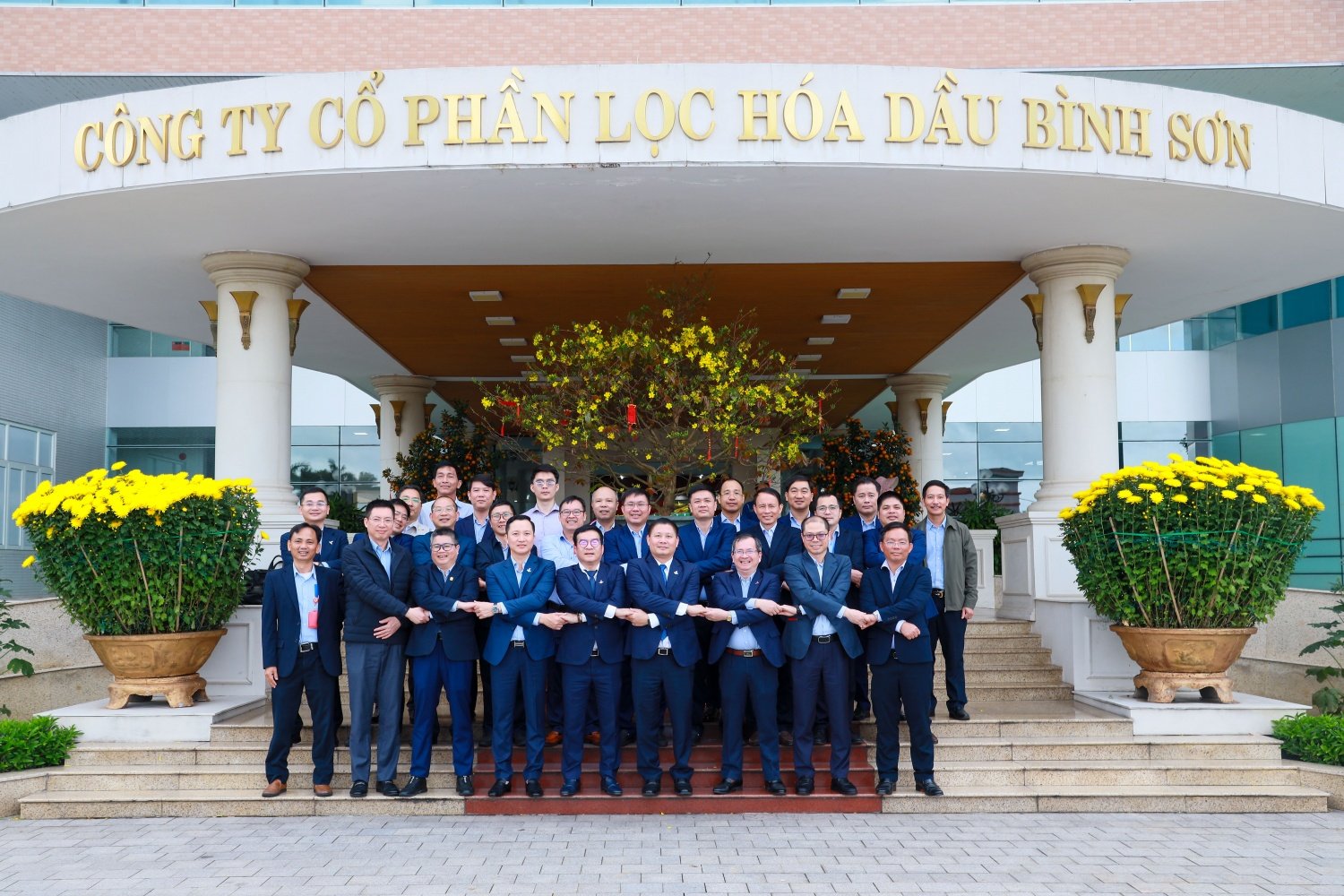
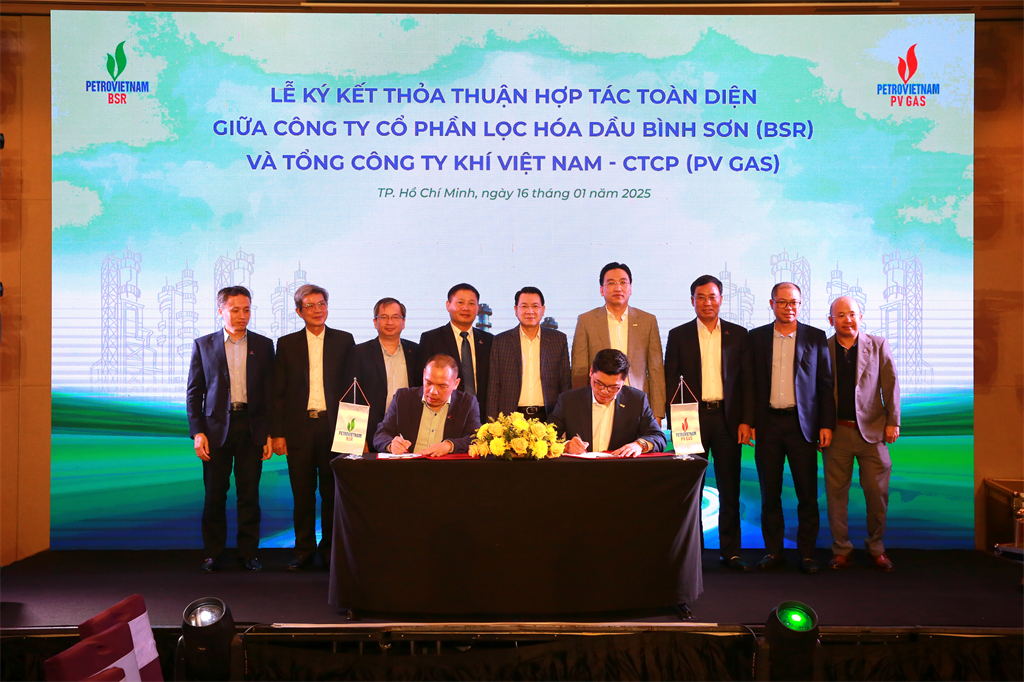

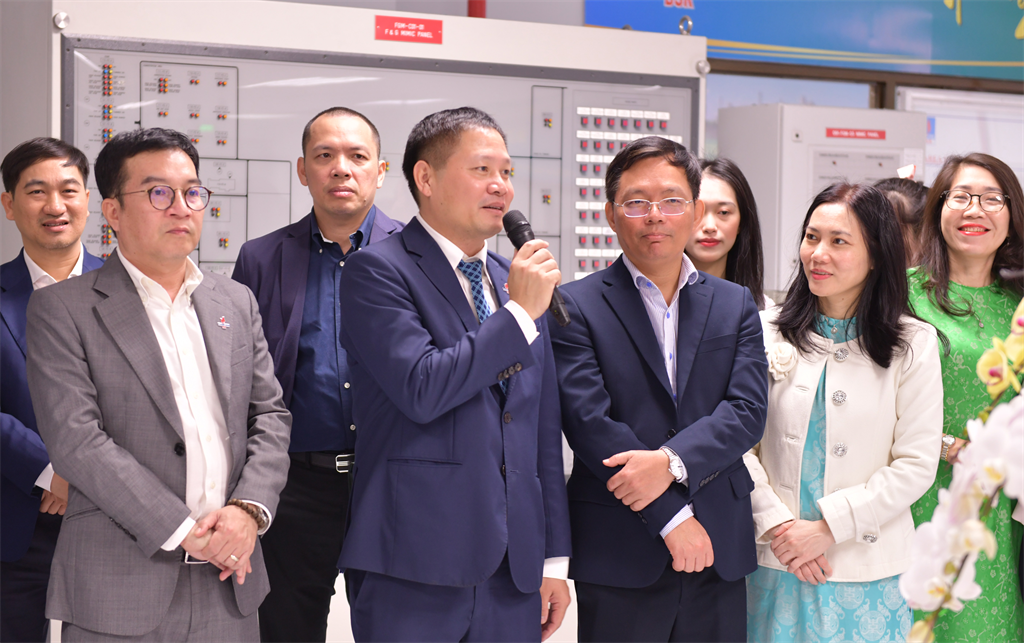
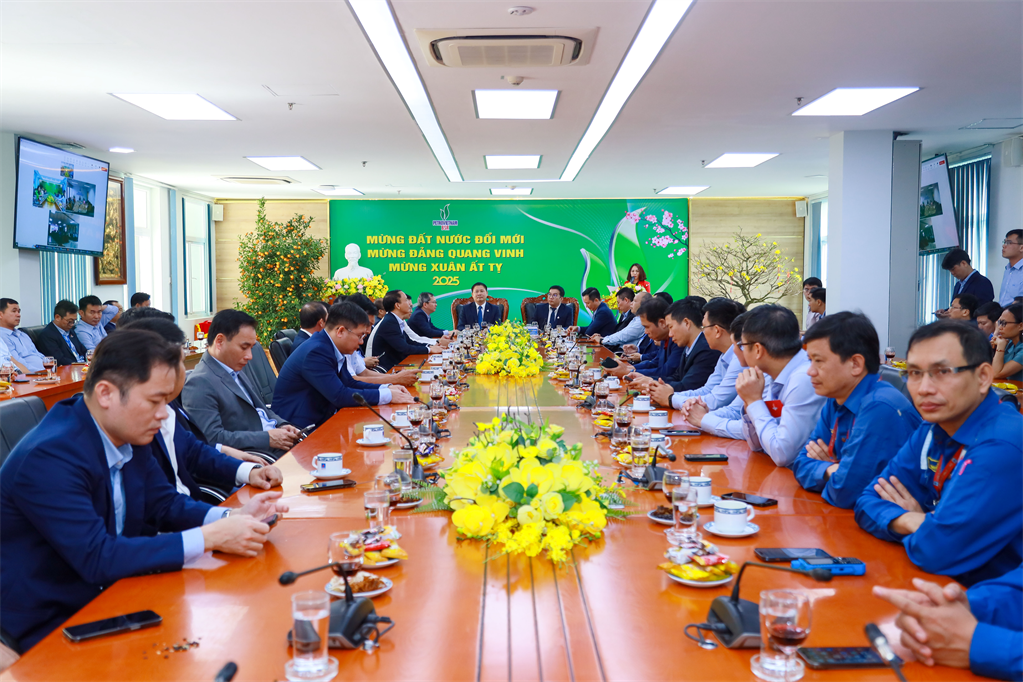
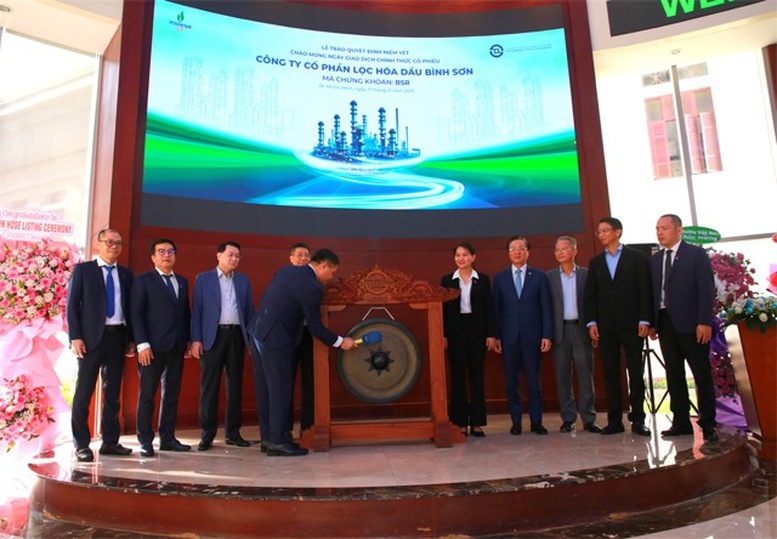

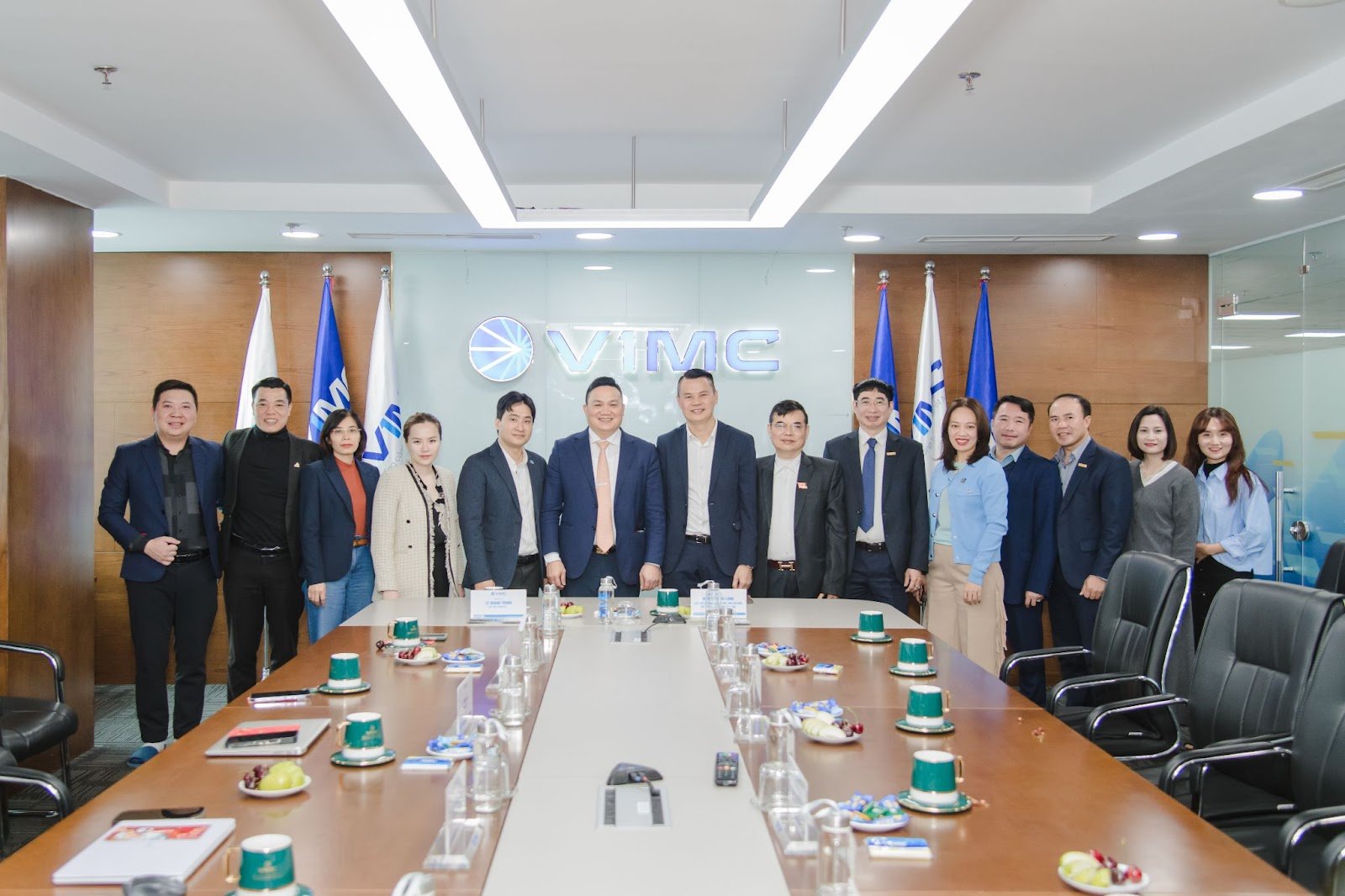



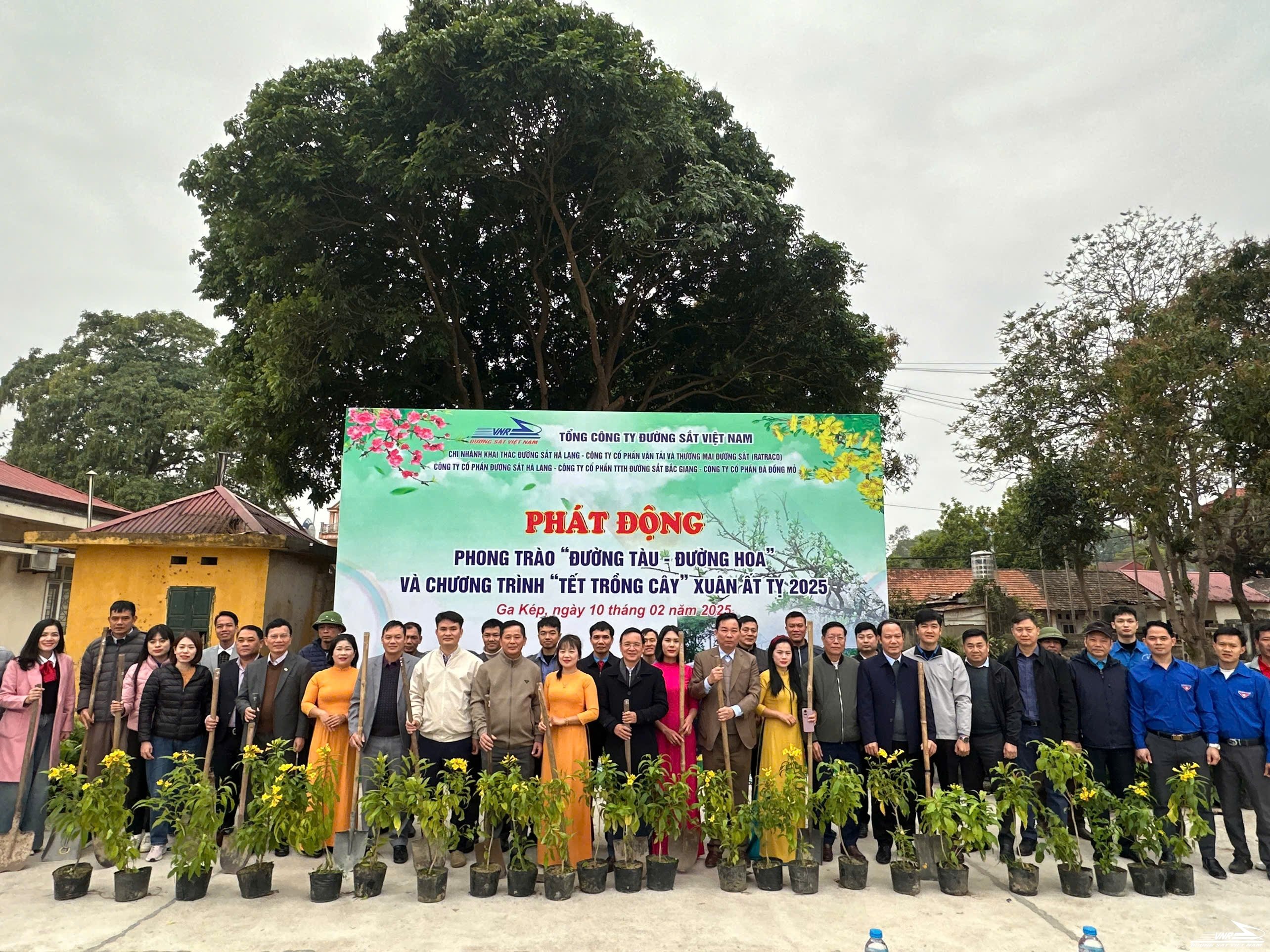
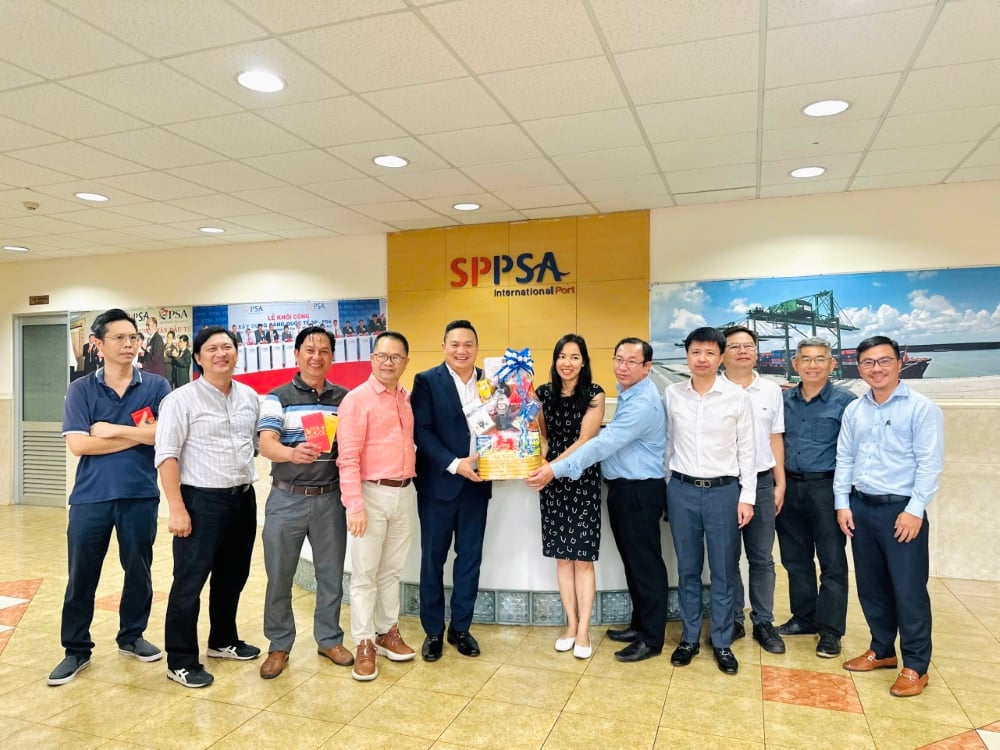








Comment (0)